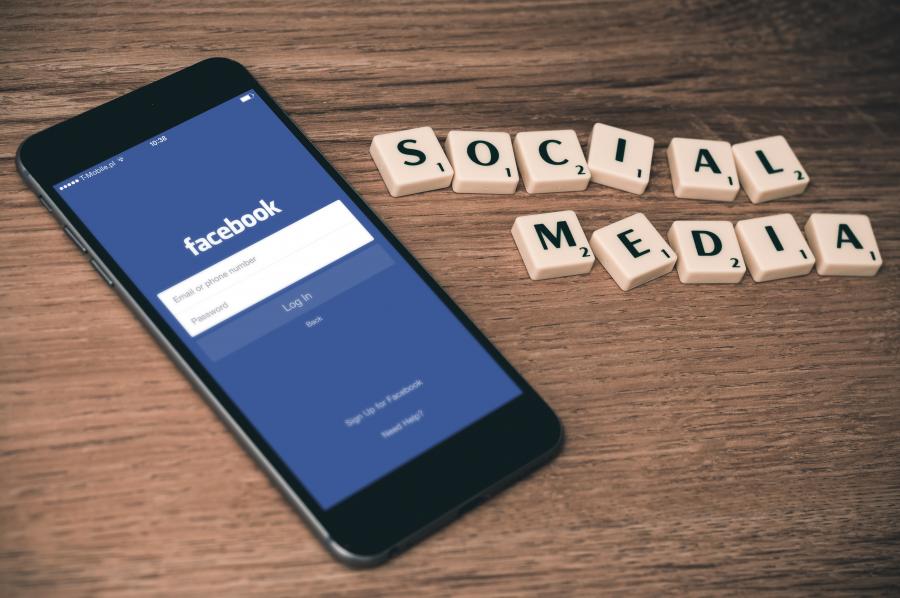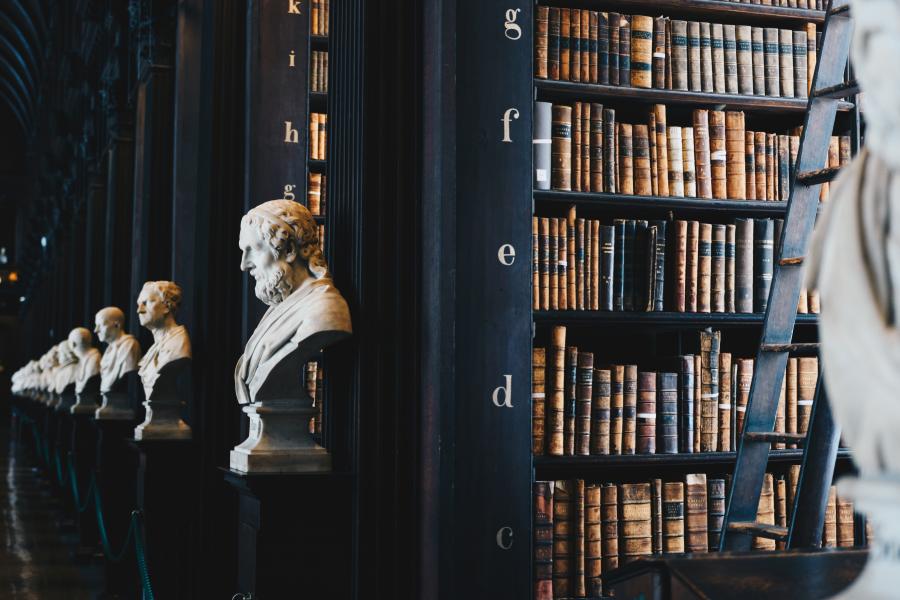
Can Social Media contribute to Human Rights?
The moment we think of social media, we usually associate it with Facebook, Twitter, and Instagram. These leading platforms allow us to share information about ourselves with friends and family online. They give us the opportunity to expand our social network all around the world. This is possible through the billions of users participating in these ‘internet-based’ platforms. The positive point is that social media allows for the establishment of a new community, that functions without borders. It has changed the norm, that is to say, the structure of society as we can think off has been altered forever. These changes also contribute to the system of cultural reforms.
In other terms, social media has an immense influence on the public. If something trends on no matter which social media platform everyone will know about it and participate in this trending thing. It is, thus, plausible to conclude that there is a negative connotation towards social media’s impact on culture. Which, in turn, could mean that it is a problem if social media contributes to human rights.
Will, the significance of the event be lost, just like the 'aura'?
The influence technology has on society, according to Walter Benjamin’s work, is positive, but he chose to also focus on the ‘implications of this'. Benjamin says that the positive attributions in society from technology is the ‘democracy of culture’, which refers to the fact that ‘cultural objects for the first time [could] be either copied on a large scale or mass-produced’. They are easier accessible for the public. Benjamin, however, notes that this has also a negative aspect to it. According to him, the ‘aura’ is lost, when things are brought closer or are made ‘more accessible to the masses’. For him the aura holds significance because it is a ‘unique phenomenon of a distance, however, may close it may be’. He believes, that we can only enjoy such phenomena if they are not easy to attain.
But the problem with technology is that everything is easier accessible, especially on social media. Thus, we have to think about the implications on our culture and the effects it has on society. Specifically, if there are constantly videos/posts of human rights violations found on social media.
It is clear that Benjamin was speaking about art, but what would happen if people are continuously confronted with Human rights violations on social media? Will the 'aura' be lost?
Benjamin's problem also relates to the main subject discussed here, due to the fact that social media is being put under scrutiny, to determine whether it can be used more than just as an entertaining platform, thus, we need to understand the connection it provides us with and how to utilize it in the right manner. It is, therefore, vital to look at connectivity from different perspectives such as interactions between humans. That is if there is real proof that social media improves communications between individuals. Plus, from the social media companies perspective, thus, what are companies willing to do to provide safe connectivity and content between different communities.
Technology and the relationship towards the individual: what do you gain or lose?
The first example is Ilana Gershon’s interview based on how people utilize new media to end relationships. It was vital for her to understand the experience these people live through since the subject carried a sense of ‘newness’ through ‘encountering a multiplicity of media ideologies’. She came up with this idea because previous interviews she conducted became very regular for her and she had reached a point where she could predict certain outcomes. New media, however, gave her a whole new range of topics to deal with, that she had never dealt beforehand with. She focused on linguistic anthropologists work on language ideologies to find the right categorization for her beliefs she had found about media ideologies.
This is because the study of media ideologies is not new, but labeling the technology or the means through which the communication is happening as a ‘media ideology’ is new. It allows Gershon and others to understand ‘communicative possibilities and the material limitations’, the channel of communication being used and the fact that media can also refer to codes. Media ideologies, according to Gershon, offer a bridge between media scholars and linguistic anthropologist.
Keeping this in mind, Gershon found that ‘intention does not predict interpretation’, ‘old media determine how new media will be perceived’, but ‘that remediation can work in both directions [..]’, thus, the new medium is impacting the present media shape in communication. She concludes, nevertheless, that these media ideologies need ‘considerable effort’ for them to ‘spread and be persuasive’. This means that according to Gershon, communication shaped by media is culturally specific. While comparing it to the development of people’s language, she says the way people use media stems from the same intention language develops from.
Gershon work, in conclusion, is vital for the understanding of the individual's communication in the new digital age we live in. It is important to note, however, that her work is focused on European-American linguistic studies and lacks a gap in understanding individuals in other areas.
The subject matter, nonetheless, proofs that communication has changed through media, and is now shaped by media. To understand how it influences our culture and in turn our society it is important to now analyze the other perspective, which is how social media companies deal with media and shape communication. Is the connectivity positive? And what type of content leads to a positive-connectivity?
The Problem with Platform Politics
In order to understand these leading platforms causing immense problems to our society, it is important to look at ‘platform politics’, which is encouraging certain cultures and behaviors to come together ‘while implicitly discouraging others', according to Adrienne Massarnari. Massanari focused her work to figure out why ‘Reddit.com has become a hub for anti-feminists activism’. It relates to the current subject because Massanari specifically dealt with the task in order to figure out why ‘platform politics implicitly support these kinds of cultures’.
Special attention needs to be given to the ‘non-human actants’, such as bots, scripts, algorithms, policies, according to Massaranari. She says, that they shape the online cultures. Points, furthermore, ultimately decide on a social media platform what relevance a comment or post carries. She elaborates by stating that ‘toxic [...] propagate precisely because of the liminal and fluid connectedness of Internet platforms’. This means, that if users have precedence over other users, their content is viewed as ‘more legitimate’, which in turn allows their posts to be viewed more.
Another important factor that Massaranari discusses is the anonymity haunting these platforms. Individuals can register and be anyone they like on the Internet. In her eyes, it seems that social media platforms provide ‘anonymous spaces’ that ‘seem to cultivate and prize’ toxic behavior/content. She also, furthermore, analyzed that the administration of these platforms tend to ‘express distaste’ but seem to ‘loathe to make any concrete changes’ and proof ‘lack of awareness [...] the platform has been and will continue to be’.
This means for us that the leading platforms not only facilitate social action but also shape it, but also there is really no positive-connectivity social media platforms have provided us with so far. Looking back at the given case, it is clear that there is still initially a big gap between the use of these social media platforms as more than just an entertaining page and using it as a mechanism to solve Human rights violations.
Facebook & Twitter: Taking a look at social media problems with society
Social media is a platform that allows users to ‘communicate, organize and share critical information that impacts [their] lives’ (van Dijck, 2013). The essential impact social media platforms have is the fact that they give us a place to freely express ourselves. Of course, freely in this sense means not to discriminate or allow hateful speeches. Moreover, Freely in this sense means to be able to share stories and issues, that for example would not have been seen on normal news networks, due to the fact that these networks are controlled. The control lies in an editor’s power to decide what content will be presented on the platform. On a social media platform, everyone is free to choose what they want to post. As long as the content is not hateful or discriminating.

For example, Facebook defines ‘sharing’ as a measure to ‘get and stay connected and to become connected’. (van Dijck, 2013)
Through this function, Facebook believes that the world will become more open and transparent. They believe that it will create a better understanding and connection between individuals.
In their eyes, they believe that this is the correct approach to have a community that shares a positive- connectivity, with the sharing device they provide their users with. A belief alone, however, might not be good enough to create positive-connectivity. Also here we can find a substantial gap between the reality they describe to be true and the ‘reality- outcome’ that actually is.
The Muslim Rohingya minority, for example, had been victims of abuse by this specific ‘sharing application’ tool facebook provided their users with. Instead of positive-connectivity, the sharing tool ended up spreading hatred, discriminating and abusive comments all over facebook, against the Rohingya people. This specific group had already lived through troublesome times. Their 700,000 members had to flee the country aimed at military crackdown and ethnic violence. Facebook, nonetheless, became involved in this turmoil through the posts Myanmar military personnel had shared on their platforms.
Their purpose was to create ‘vulnerability and fear’, according to researchers who follow the tactics, that could only be solved through military protection. A tactic used by many dictators, which is to ‘accumulate power by manipulating the hearts and minds of your citizens’. These posts were of such atrocious severity that the New York Times reported former military officials, researchers, and civilian officials say that it is turning ‘the social network into a tool for ethnic cleansing’ and the United Nations describing it as ‘a textbook example of ethnic cleansing’. This is true if one looks at the posts. Below is an example of Reuters Investigates quote they had found, that was shared on facebook. The quote illustrates the hatred, discriminating and abusive comments left by users about the Rhogniy people.
“One user posted a restaurant advertisement featuring Rohingya-style food. “We must fight them the way Hitler did the Jews, damn kalars!” the person wrote, using a pejorative for the Rohingya. That post went up in December 2013.”
The majority of users that had posted these offensive comments, knew initially what they were doing. It is a known factor that Facebook is used in Myanmar tremendously, with the New York Times referring to the Myanmar community usage of facebook so frequently that they confuse it with the internet. Eventually, in April of 2018, the founder Mark Zuckerberg told U.S. Senators that they were ‘hiring dozens more Burmese speakers to review hate speech posted in Myanmar’.
Facebook took charge by taking down different accounts, nevertheless, this sufficed only as a temporary solution. This is because many users that had posted incendiary comments used fake accounts and names in order to hide their identity. In turn, it complicated Facebook approach to solving the issue, because many went undetected. Facebook, thus, addressed the incident again in August of the same year and admitted to having taken the matter not serious enough. This, however, seemed to only have brought Facebook to take down a page, nevertheless, they did not eradicate the issue completely. Anti-Rohingya posts can be still found under the hashtag ‘#Oppositeyes’.
Facebook has admitted that they are ‘aware of the power of the platform’.
Twitter also believes that they offer a ‘neutral platform upon which users freely interact[…] transports tweets, regardless of who its users are’ (van Dijck, 2013). This clearly became a great aid during the Iranian uprising (2009), Arab spring (2010) and the Occupy movement (2011). Therefore, Twitter proved to be on the first look a ‘neutral tool’ were citizens could take hold of their own ‘communication and propaganda channels to challenge the power of […] governments and news org’. (van Dijck, 2013) This of course in practice turned out not to be as neutral as they promised, with some tweets holding precedents than others, due to their users- fame-status. That contradicts the claim of it being a neutral platform.
[Other issues that have proven to arise that harm specifically freedom of expression, a basic human right, are:]
In the next section, I will address a group of people that try to make good out of bad, by protecting society with social media platforms.
Shaping Society: Law Students protecting the Community via Social Media
The University of California's Berkely Law department has launched a Human Rights Investigation Center Lab, that solely focuses on mining social media and the Internet to find violations that go against basic Human rights. They are not limited to a specific area but instead focus their work around the globe. Furthermore, this course is in partnership with Amnesty International. Sam Dubberly a respective representative of Amnesty International, states that the impact the students are having around the world is ‘reverberating’. It took only a week of training for the students to be able to hand in their first case, according to Sam. The case was a video about Sudan, which was in turn used by Amnesty International to present to the United Nations during a meeting. This is remarkable work and proofs that social media indeed has contributed to Human Rights, in a concrete manner.

The students that have been interviewed, state that also they were caught by surprise that such a class existed. Particularly, Michael Elsanadi, an undergraduate at UC Berkeley, states that he ‘entered a whole new world of using technology to help human rights’. Nevertheless, he does mention that he was not aware of this being a possibility. Moreover, an exchange student from the Unversity of Essex, Olivia Innaelli, says that it has shown her a ‘new path with regards to human rights’.
Another exchange student, Henrietta Ekefre, finds that this course is able to ‘bring to light accountability’, referring to the fact that governments are shadowed more now. Since it is not only one place but the globe partaking into holding a government responsible for its actions or lack of actions against abuse or any type of human rights violation.
The aim of the Human Rights Investigation Lab is to create a ‘pipeline of trained investigators’ that will be able to ‘provide the staffing for this new generation of human rights work’. The concluding words of Sam Dubberly are the program’s answer to their achievements. He says that ‘the range of [experience] and nationalities and languages spoken’ is truly the key to the success they have experienced. They are furthermore, aiming to create ‘a global network of really incredible investigators’.
The Key: we are looking for it
Does this really change and eradicate abuse?
We underestimate the power of the internet. We can hold actors that violate basic human rights accountable if we spread the news on the World Wide Web. The web main social network is social media. These platforms such as Facebook, Twitter and Instagram have allowed us to establish a community beyond our borders. But if we can ever live in the utopia we hope for remains still unclear.

Reference
‘7- Differences Social Media vs Traditional Media’. Easy Media. Easymedia.in. (January 11, 2018)
‘Article 19’. Article 19. Article19.org. (January 13, 2019)
‘Cutting Off Politwoops Twitter follows the needs of Politicians’. HuffingtonPost. Huffingtonpost.com. (August 25, 2015)
‘ Human Rights’, ‘United Nations’ & ‘ Facebook Real-Name Policy controversy’ & 'Actor-Network Theory' & 'The Work of Art in the Age of Mechanical Reproduction' & 'Rohingya people'. Wikipedia. Wikipedia.org. (January 10, 2019)
‘Berkely University Human Rights’ Youtube. Youtube.com. (January 4, 2019)
Understanding Digital Culture.ed. Miller, Vincent (London 2011)
Lingustic Anthropology.ed.Gershon, Ilana (Indiana University 2010)
‘What can Social media platforms do for Human Rights?’. openDemocracy. Opendemocracy.net. (September 24, 2018)
‘Human Rights Online or on the line? The Role of New (social) Media in Human Rights Protection’. Media governance. Mediagovernance.univie.ac.at (January 10, 2019)
‘A Genocide Incited on Facebook, With posts from Myanmar's Military’. The New York Times. Nytimes.com (February 18, 2019)
‘Why Facebook is losing the war on hate speech in Myanmar’. Reuters Investigates. Reuters.com (February 20, 2019)
‘7 Steps to Becoming a Dictator’. Psychology Today. Psychologytoday.com. (February 19, 2019)
#Gamergate and The Fappening: How Reddit’s algorithm, governance, and culture support toxic technocultures.ed. Adrienne Massanari (University of Illinois at Chicago, 2015)